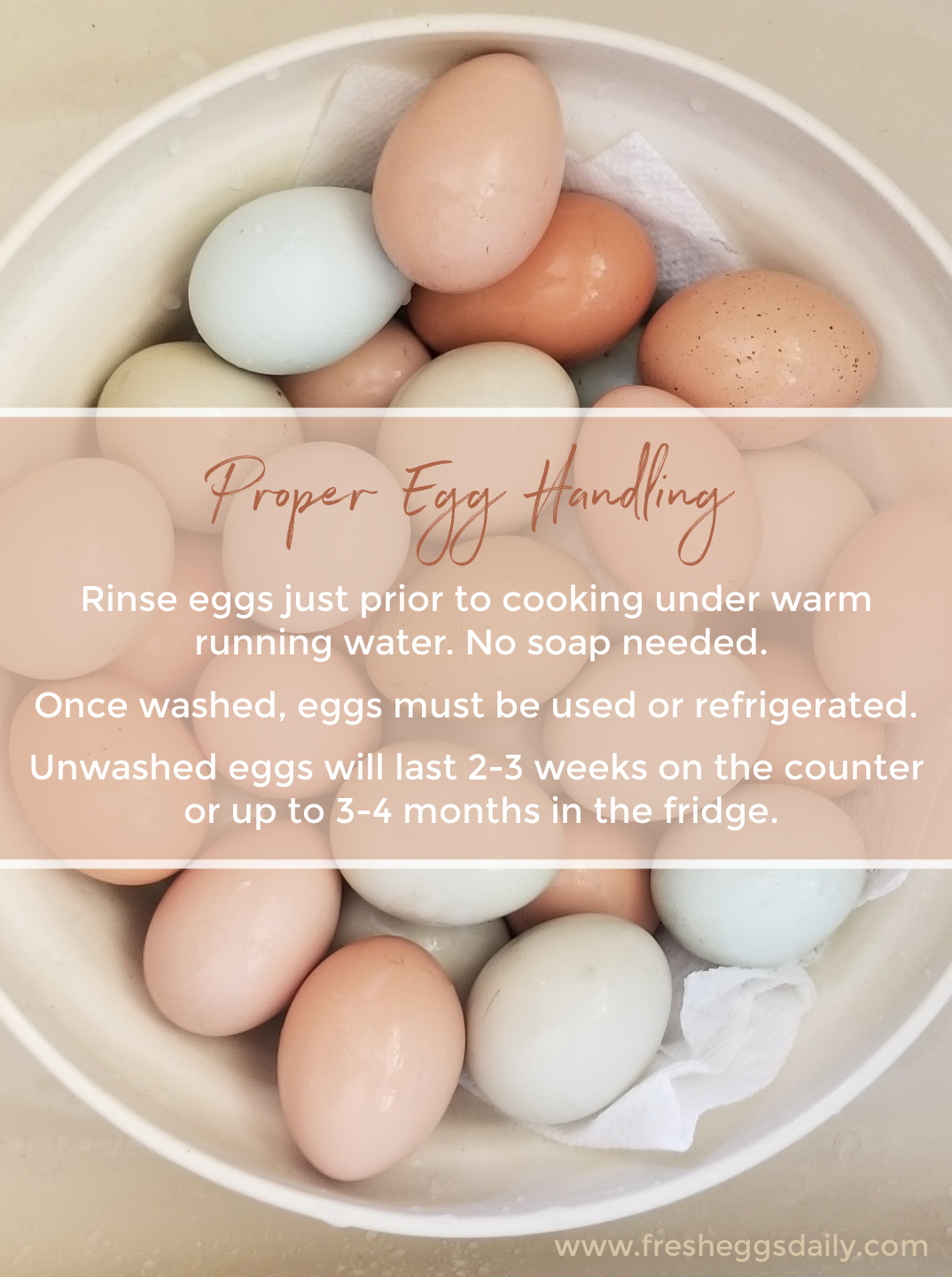When it comes to food preservation, eggs often take center stage due to their nutritional value and versatility. However, many consumers are unaware of the significant differences between washed and unwashed eggs, particularly regarding their shelf life. Unwashed eggs, often favored by backyard chicken keepers, boast a remarkable ability to remain fresh for extended periods without refrigeration. This intriguing characteristic is primarily due to the natural protective coating, known as the bloom, that unwashed eggs retain.
In this article, we will delve into the shelf life of unwashed eggs, exploring the factors that influence their longevity, how to properly store them, and tips for determining freshness. Understanding these elements can help you make informed decisions about egg consumption and food safety, ensuring you enjoy your eggs at their optimal quality.
As we navigate the world of unwashed eggs and their shelf life, we will also address common questions surrounding their storage and usage. This knowledge will empower you to appreciate the value of unwashed eggs, reducing waste and enhancing your culinary repertoire.
What is the Natural Coating on Unwashed Eggs?
The natural coating on unwashed eggs, known as the bloom or cuticle, plays a crucial role in preserving their freshness. This protective layer acts as a barrier against bacteria and moisture loss, allowing unwashed eggs to be stored at room temperature for longer periods. The bloom's presence significantly extends the shelf life of unwashed eggs compared to their washed counterparts, which have had this protective layer removed.
How Long Can Unwashed Eggs Last?
Unwashed eggs can maintain their freshness for an impressive duration when stored correctly. Here are some general guidelines for the shelf life of unwashed eggs:
- At room temperature: 2 to 3 weeks
- In the refrigerator: Up to 6 months
It's important to note that these timeframes can vary based on factors such as temperature, humidity, and the initial quality of the eggs. Proper storage conditions are vital to maximize the shelf life of unwashed eggs.
What Factors Affect the Shelf Life of Unwashed Eggs?
Several factors can influence the shelf life of unwashed eggs:
- Temperature: Warmer temperatures can accelerate spoilage, while cooler conditions help preserve freshness.
- Humidity: High humidity levels may encourage mold growth, while low humidity can lead to moisture loss.
- Egg Quality: Fresh, high-quality eggs tend to last longer than those with visible defects or cracks.
How Should Unwashed Eggs Be Stored?
To ensure the longevity of unwashed eggs, proper storage is essential. Here are some best practices:
- Room Temperature: Store unwashed eggs in a cool, dry place away from direct sunlight.
- Refrigeration: For longer storage, place unwashed eggs in the refrigerator, ideally in their original carton to minimize exposure to moisture and odors.
How Can You Tell If Unwashed Eggs Are Still Fresh?
Determining the freshness of unwashed eggs is crucial for food safety. Here are some methods to check their freshness:
- Float Test: Place the egg in a bowl of water. If it sinks, it's fresh; if it floats, it may be spoiled.
- Smell Test: A foul odor when cracking the egg indicates spoilage.
- Visual Inspection: Check for any unusual discoloration or cracks in the shell.
Can You Use Unwashed Eggs After the Expiration Date?
While unwashed eggs may still be safe to consume after the expiration date, it is essential to perform a freshness test before use. If the eggs pass the float test and show no signs of spoilage, they may still be suitable for consumption. However, if you have any doubts about their freshness, it's best to err on the side of caution and discard them to avoid foodborne illness.
Are There Any Health Benefits to Consuming Unwashed Eggs?
Unwashed eggs offer several health benefits due to their natural composition and preservation methods. Some advantages include:
- Higher Nutritional Value: Unwashed eggs retain their nutrients better than washed eggs, which can lose some beneficial components during the cleaning process.
- Natural Flavor: Many consumers report that unwashed eggs have a richer, more robust flavor compared to their washed counterparts.
- Lower Risk of Contamination: The bloom helps protect against bacteria, reducing the risk of contamination.
Conclusion: Embracing Unwashed Eggs for Culinary Excellence
Understanding the shelf life of unwashed eggs empowers consumers to make informed choices about food storage and safety. By recognizing the significance of the bloom and implementing proper storage techniques, you can enjoy the benefits of unwashed eggs while minimizing waste. Whether you’re a backyard chicken keeper or a culinary enthusiast, embracing unwashed eggs can elevate your cooking experience and enhance your appreciation for this versatile ingredient.



